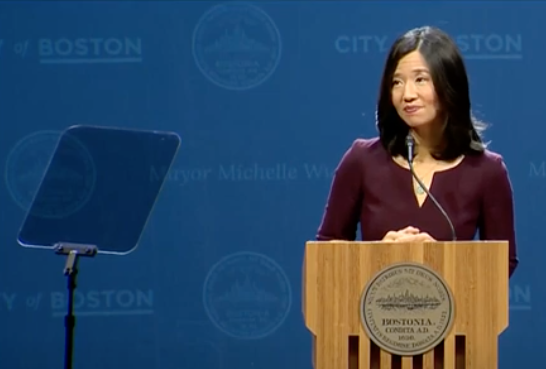“Stakeholder capitalism,” and the corporate speechwriter
February 09, 2022
If speechwriters and their bosses don't talk about "stakeholder capitalism" very often, maybe it's because they're too busy trying to make it meaningful.
New York University history professor Kim Phillips-Fein had a guest essay in The New York Times last week that got under my skin, on behalf of my friends and colleagues in corporate executive communication.
They write for some of the most powerful people in the world, and clearly don’t need me to defend them.
And yet, here I go: Phillips-Fein told Times readers that if they want significant social change in this country, they should have no truck with this notion called “stakeholder capitalism“—or any of its articulators or apologists.
Why?
A fantasy capitalism that magically balances the interests of workers, investors, communities and shareholders has a strong allure, but pursuing it is a self-defeating strategy—and rooted in political despair. Focusing political energy on securing the commitment of a group of business elites would undermine the engagement of a broad democratic base that must be the real basis of substantial reform. To address many of our deepest problems, nothing less than a redistribution of economic and political power will be needed, and it will be achieved only over the opposition of business and the wealthy.
Let us add up the amount of rhetorical dishonesty in that one money paragraph:
- No one, inside corporations or out, “fantasizes” about a “magical” social utopia coming as a result of companies behaving more like responsible members of a whole society.
- “Political despair”: Well yeah, that’s going around—along with political desperation. Forgive us.
- This vaguely stated concern about unnamed numbers or factions of us “focusing political energy on securing the commitment of a group of business elites”? So the time-honored practice of pressuring companies to be better social citizens is simply a waste of energy? No, it’s worse than that!
- What is this “broad democratic base,” the potential (and some might say fantastical) engagement of which Phillips-Fein is fearful will be undermined by engaging corporations in reform efforts, too? Such murky language, coming from such an immaculate mind!
- And that last sentence asks millions who work in and around big corporations to either hold their breath and wait for the economic revolution that overturns corporate America—or to march down to Mansion Row and start throwing bricks into the windows themselves.
Now, look: In the position I’m in—the professional convener of a community of people who help corporate CEOs and other well-heeled leaders communicate—of course I’m going to react against someone who would reduce any corporate-led reform efforts to nothing more than a smokescreen behind which to steal more from the poor. And perhaps I’m who Upton Sinclair was talking about when he said, “It is difficult to get a man to understand something, when his salary depends on his not understanding it.”
But I wonder what people like Phillips-Fein want? A return to corporate CEOs behaving like stone-cold Robber Barons, leaving labor unions and others to fight and bleed and die at the factory gates? Would the moral clarity of that be worth it to her?
One of my best friends in the morally problematic business I’m in is Janet Stovall, who has devoted much of her career in executive communication to what she calls “pragmatic diversity.” Essentially, that means pushing at top practical speed, the white corporate leaders she works for to be more explicitly progressive (and less culturally ignorant) when they talk about issues surrounding race in America. As a pursuit worthy of a passionate reformer, that may sound a bit gray to you. But not when she talks about it, sharply, in the hushed halls of corporate America—the way she did in this TED Talk, delivered when she was speechwriter to the CEO of UPS, a few years ago.
I’ve always been somewhat skeptical of Janet’s belief that business, more than any other sector of society, can “dismantle racism,” in her words.
But this is the first time Janet is hearing that. Why?
Because my doubt does not compel me to tell her she is wrong when she tells me, as she did yesterday in an email, that she still believes that “organizations can and should be social change agents. They simply have to lead from the spaces they’re in and focus specifically on where they can and are willing to play substantially. Basically, do what they do well for the causes that make sense. It will require a pragmatic view of the effort, with considerations of profit impact, resource allocations, etc. But if that happened, they could return stakeholder value and lead change. Or so I believe.”
As long as someone like Janet Stovall believes that—Janet Stovall, who has helped spearhead the profound diversifying of our own speechwriting industry over the last five years—then I have reason to hope it’s true.
Janet Stovall doesn’t talk about “stakeholder capitalism” much. None of the corporate speechwriters I know do. The term is a bit grandiose, don’t you think?—and it does suggest an airtight, complete economic system—one that I don’t think anybody believes will ever be a thing. I don’t know exactly what CEOs really think when they lay their heads on the pillow. But I know their speechwriters pretty well. And I’ve never heard one of them who sounded like she or he was selling “fantasy capitalism”—in speeches or in taverns. Saner corporate behavior, more like—with a wiser eye on the long-term health of the society in which the company operates.
And yes, I know there’s a respectable school of thought that says there is no such thing as humane capitalism. But its headmasters don’t seem to me like they’re going to be in charge anytime soon.
Until they are, we’re stuck with companies that have huge influence in the society they operate in.
Their motives are mixed. Their power is dangerous.
As I wrote last fall, after reading The Edge of Anarchy, about how George Pullman crushed a national railroad strike in 1894: “If Corporate America is kinder and gentler now, it is up to us to remember that Corporate America is only kinder and gentler for now. Just as Americans instinctively distrust Big Government, Big Business always needs watching. As Eugene Debs said, in advocating for government control of railroad monopolies: ‘Government ownership of railroads is decidedly better for the people than railroad ownership of Government.’”
So let’s watch Big Business, one company at a time. Let’s watch them from the outside, and from the inside. Let’s push them to be as socially responsible as all our influence can get them to be.
And when they inevitably fall short, let’s oppose them outright. And let’s work on climate reform and corporate tax reform and campaign financing reform all along. I’m looking at you, Citizens United.
But let’s oppose (and partner with) corporations for the roiling economic and political staples of modern society that they actually are. And not the monolithic Evil Empires that some history professors want to teach us to try to wish away, with rhetoric just as disingenuous as anything coming out of corporate communication departments today.



